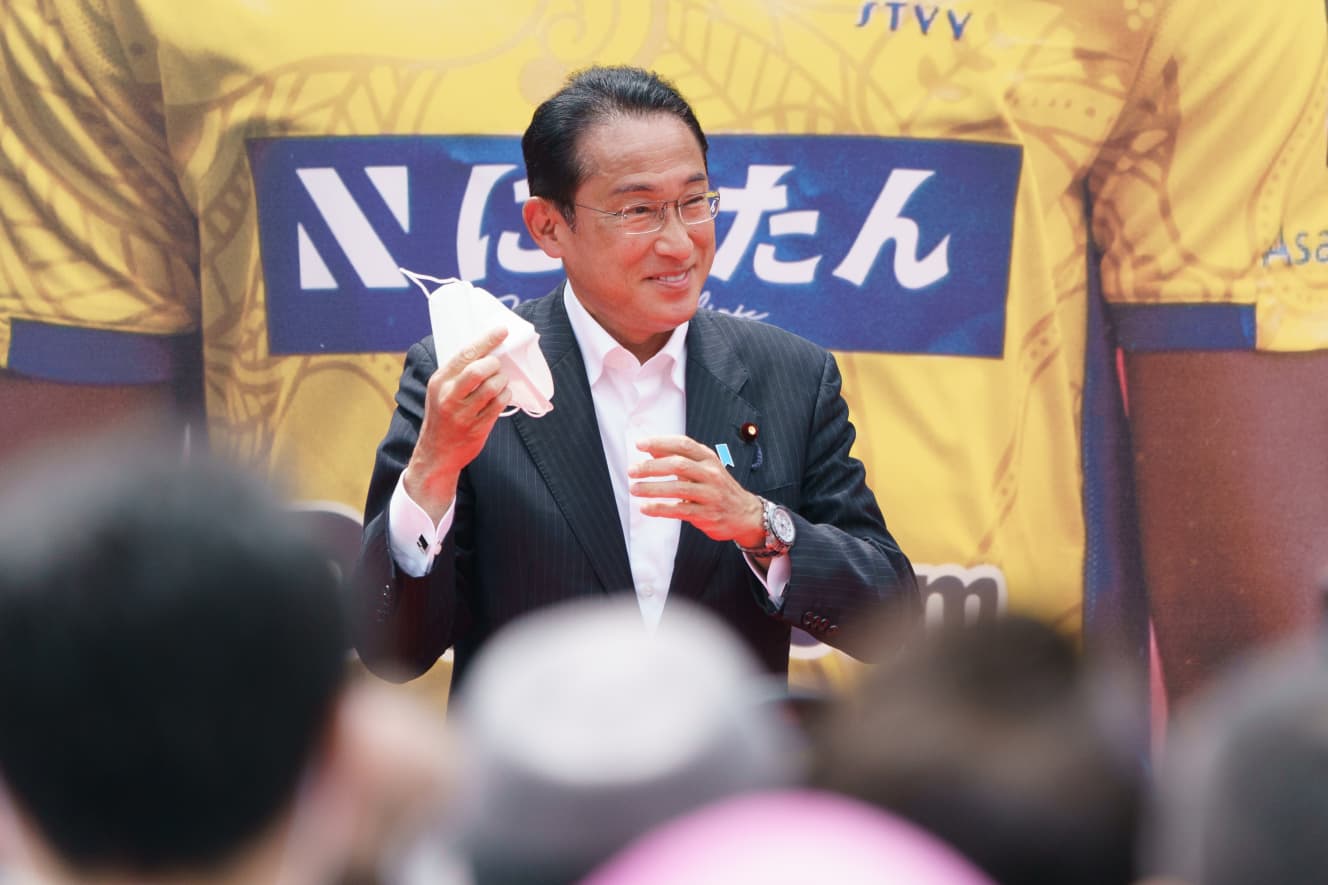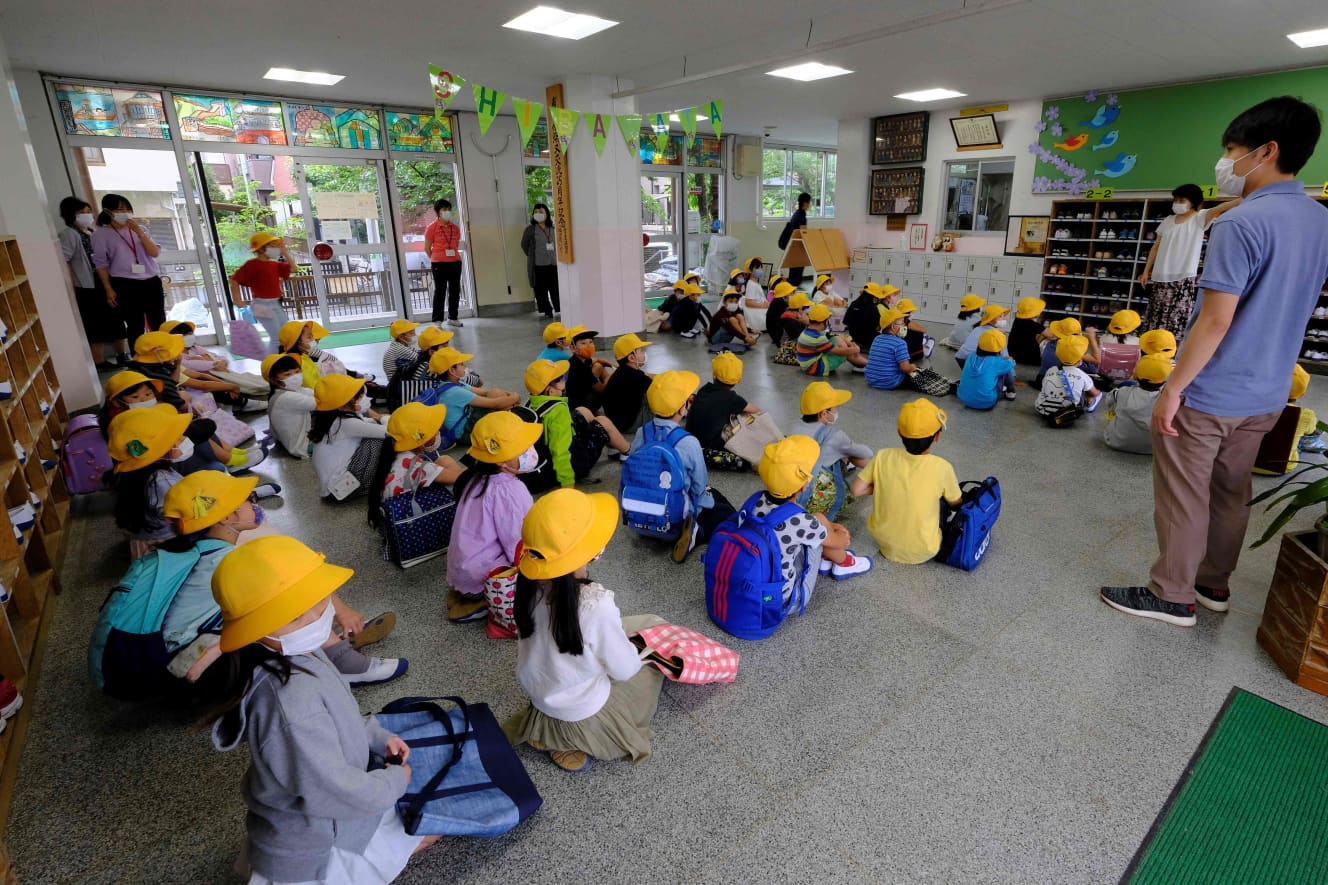The “Teacher’s Baton” Continues as the “Education Field” is Exhausted in the Shadow of Strengthening the National Defense
Prime Minister Kishida says, “Education is the foundation of the nation”
“I thought about registering as a teacher since I had finished raising my children. But I got scared when I heard that as soon as I registered, I would be contacted by people saying, “Come back next week,” and I ended up quitting. Even people who have never taught before will be contacted right away, so if you want, you can register.”
I heard such a story from a friend who was a teacher at an elementary school in Tokyo.
Another friend told me, “I was going to register as a teacher, but when I saw the benefits, I decided not to. I was surprised at the number of applicants when I looked at the list of openings.”
Last year, the Ministry of Education, Culture, Sports, Science, and Technology (MEXT) launched a project called “#Teacher Baton” to encourage teachers to share the appeal of their jobs through Twitter and other media. However, when the project was launched, it turned out that contrary to its original aim, the only content posted was about the harsh working environment, and the teacher shortage was covered by the mass media and became a major topic of conversation.
Some people may have considered this to be transient news and a topic of the past.
However, the “#Teacher Baton” continues to this day, and the situation is getting worse, not better.

Classes have become “self-study”, The Growing Teacher Shortage
Last year, the Ministry of Education, Culture, Sports, Science and Technology conducted a nationwide survey on teacher shortages for the first time, targeting public elementary, junior high, and senior high schools and special-needs schools nationwide. As of the first day of school last April, 2,558 teachers had not been assigned as planned nationwide, but the Tokyo Metropolitan Government announced that there was no shortage in either elementary or junior high schools.
On the other hand, the Ministry of Education, Culture, Sports, Science and Technology urgently notified boards of education nationwide that a severe shortage of teachers has been reported again this school year. It is urging active use of the “special license system,” which allows working adults with knowledge and experience to be hired as teachers even if they do not have a teaching license.
Furthermore, as of July 1 of this year, the “teacher license renewal system,” which had been a major burden on busy teachers, was abolished. Instead, however, individual teachers are required to record their training and principals are required to provide guidance and advice. There has already been a wave of criticism that the system “does not at all understand the difficulties faced by teachers in the field.
The shortage of teachers is extremely serious.
The Tokyo Metropolitan Board of Education’s website states, ” [Urgent call] We are recruiting temporary appointment teachers for Tokyo public schools! We need your help!” (June 13) and other frequent releases of teacher recruitment in 2022 alone.
On June 16, the official Twitter page of the Tokyo Metropolitan Board of Education posted the following.
“(Mark of applause) Temporary teachers, we’re looking for you! What is a temporary teacher? The job description is the same as that of a regular teacher, and you may be asked to teach classes and be in charge of classroom teaching! (abbreviated below).”
“The current way of making teachers work is a violation of their human rights. It’s not possible to do the same job as a regular teacher until March from the position of a temporary appointment. It’s too good to be true!” Several comments criticized the situation.
The shortage of teachers is not limited to Tokyo. It was just reported that public schools in Hyogo Prefecture are short 114 teachers and that Japanese language classes are being taught on a self-study basis. In addition, there have been murmurs in many places that “teachers were being recruited in school newsletters,” “there was teacher recruitment via e-mail and flyers,” “there were once posters for teacher recruitment in convenience stores,” and “there was teacher recruitment via advertising cars,” etc.
The main cause is the unplanned curtailment of recruitment of the ice age generation
Parents are not the only ones who are anxious and dissatisfied with these pretentious measures.
A company employee in his 40s, a baby boomer generation, who graduated from the Faculty of Education at Tokyo Gakugei University, a national teacher training college where the author is also a graduate, says:
“The number of prospective candidates for the year 2023 was 2,870, 2,640 for the year 2022, and more than 3,000 before that, and the ratio of applicants to applicants was reported to be in the 3 times range. However, around the time I took the exam, the Tokyo Metropolitan Government announced that the total number of elementary school teachers to be hired was limited to 50, and there was a big fuss about it. As I recall, it was later changed to 100.
Even so, we were the second baby boom generation with a large population, and we were also the generation in the ice age of employment due to the bursting of the bubble economy, and the teacher recruitment examinations were extremely difficult with a high ratio of applicants.
In my class, only one person became an elementary school teacher in Tokyo. Because of the extremely high odds, many people took the employment examinations in regions where odds were relatively moderate, even though they were not from their hometowns. Except for a few of my classmates who were going into the private sector, very few of them had decided on a career path at the time of their graduation ceremony, and it was common for most of them to be “putaro,” or “teacher recruitment exam ronin.”
Many of my friends who excelled in their studies became teachers after having spent some period as a ronin for the employment examination. Some became teachers after working part-time as cram school teachers, and some stopped taking the employment exam midway through and started private tutoring. Some found jobs in other fields, and some quit teaching and went into other fields.

The “education field” is becoming increasingly blackened.
“The current shortage of teachers is largely because that the current generation of teachers in their forties or so has been slacking off as a result of a temporary, unplanned curtailment of hiring.
Nationwide, the average ratio is about 3 times today, but it was 12.5 times in 2000, the peak year. When I became a teacher, there were no teachers of my generation at all in schools, and they were all much older than me. I was told by my seniors, “Your generation is hiring too few people and there are no people at all, so you will definitely get an assistant principal or something,” and in fact, there was no one to do it, so I did it.
Due to the shortage of teachers, part-time teachers are often appointed as classroom teachers. But there are also places where the vice-principal also serves as a classroom teacher. Vice-principals are already hard workers, and to be honest, it’s too much to ask them to become classroom teachers as well.” (40’s, an elementary school teacher in Tokyo)
“In addition to maternity and childcare leave, there are many teachers who take time off due to mental illness or physical problems, so there is always a shortage of teachers.
There is such a shortage that even teachers who have just taken a leave of absence due to maternity leave, illness, depression, etc. are immediately contacted and asked, “Are you ready to go back?” It’s hard to take a break at all.
The vice principal of a school I know is so busy that he is confused. To make up for the shortage of teachers, he went through the teacher registration list from one end to the other but could find no teachers at all. He found himself on the second round of the same list, without being able to find a single person among the mountain of names on the list,” said a vice principal of a junior high school in Tokyo in his 40s.
Incidentally, some junior high schools are outsourcing club activities, but parents sometimes ask, “Who will take responsibility when something happens on a day off without a teacher?” In both elementary and junior high schools, teachers now have a large amount of work to do outside of the classroom, such as teaching Internet literacy, including the use of cell phones and smartphones, providing counseling and guidance on social networking problems among children, handling complaints from parents, and responding to complaints from neighbors.
Moreover, we frequently receive a large number of surveys from the government, such as a national survey on how all staff members spend their long vacations (destinations), a survey on graffiti on election posters, etc. We don’t know when and where they will be used and the results will not be made public.
I feel bad asking busy teachers to do it each time, and there is no one to tabulate them, so in the end, I (vice-principal) do it myself. (Why don’t you ask the principal to do it?) The principal is the busiest person in the school, so it’s impossible.
Just having a staff member who specializes in administrative work would be a great help, and if overtime pay was available, I think the shortage of teachers would improve, too.
With the serious shortage of teachers and the long working hours of teachers becoming a major problem, improving the compensation of teachers is an urgent issue to improve the situation.
The House of Councilors election will be held on July 10, and one of the criteria for selecting candidates and political parties should be whether or not they have “education spending” and other issues on their agenda.
Interview and text by: Wakako Tako
Born in 1973. After working for a publishing company and an advertising production company, she became a freelance writer. She interviews actors for weekly and monthly magazines and writes drama columns for various media. His main publications include "All Important Things Are Taught by Morning Drama" (Ota Publishing), "KinKiKids: Owarinakimichi" and "Hey!Say!JUMP: When 9 Tobira Open" (both from Earls Publishing).